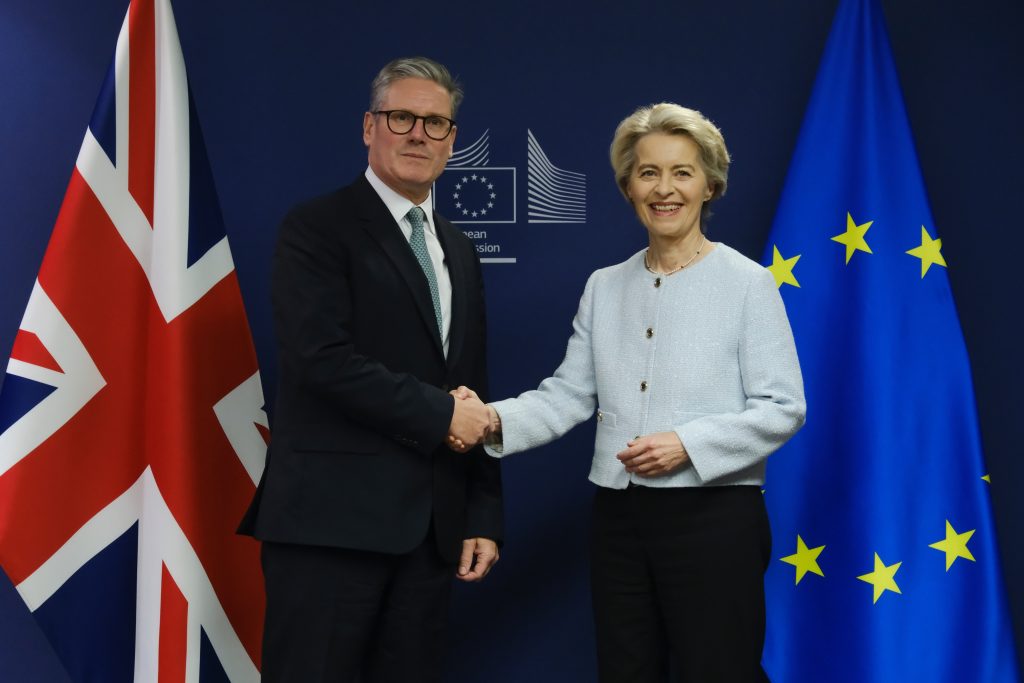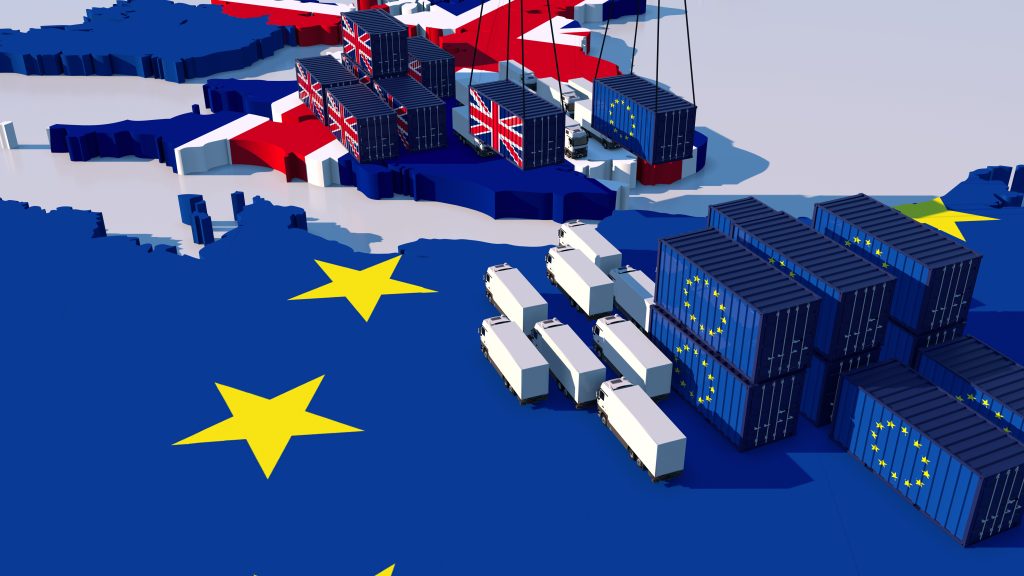The Pan-Euro-Mediterranean (PEM) Convention offers the UK a practical opportunity to recalibrate its trade relationship with Europe.
At the World Economic Forum in Davos, EU Trade Commissioner Maroš Šefčovič signalled that Brussels is open to the UK joining the Pan-Euro-Mediterranean (PEM) Convention. While this marks a potential turning point in UK-EU trade relations, the UK government’s response has been tepid.
Housing Minister, Matthew Pennycook, and Minister for EU Relations, Nick Thomas-Symonds, have stated there are no immediate plans to pursue membership, while Chancellor Rachel Reeves has said she is “happy to look” at the UK joining PEM and acknowledged that the convention is not equivalent to a customs union – an important distinction for Labour.
This divergence leaves room for cautious optimism. The PEM Convention could provide a pathway for the UK to enhance its trade relations with Europe while adhering to its political red lines.

Why PEM Matters for the UK
The PEM Convention includes the EU and 24 other countries, such as Norway, Algeria, and Ukraine, and offers a framework for diagonal cumulation of origin. This arrangement allows components sourced from any PEM country to qualify as originating in the final product’s country of manufacture.
Sir Nick Harvey, CEO, European Movement UK said: “Joining the PEM Convention could send a clear signal that the UK is serious about rebuilding trust and co-operation with Europe – a pragmatic step forward for British industries and trade relations.”
For UK businesses, this means greater flexibility in sourcing materials and qualifying for tariff-free trade under preferential agreements. Industries such as automotive, chemicals, and food production, which rely on complex cross-border supply chains, stand to benefit significantly.
Since Brexit, UK businesses have faced rising costs, complicated rules of origin, and barriers to trade. Membership in PEM could alleviate some of these challenges, providing practical support and reducing friction in vital industries.
Addressing the Government’s Hesitation
Despite PEM’s clear benefits, the government’s reluctance to pursue membership is puzzling. Joining PEM would not violate the UK’s self-imposed red lines. Instead, it could complement the UK-EU Trade and Cooperation Agreement (TCA), allowing exporters to choose the most advantageous framework for tariff-free trade.
Similar dual-framework arrangements already exist in international trade. For example, UK exporters to Australia can follow the UK-Australia free trade agreement or the rules of the Comprehensive and Progressive Agreement for Trans-Pacific Partnership (CPTPP).
Countries such as Switzerland and Morocco have expressed enthusiasm for the UK joining PEM, highlighting the mutual benefits of reduced trade friction and greater regional integration. Few UK businesses might lose from this arrangement, but many more could gain.
Broader Implications for UK-EU Relations
Joining PEM should be seen as part of a wider strategy to rebuild trust and cooperation with the EU. It aligns with other initiatives, such as rejoining Erasmus+, negotiating a youth mobility agreement, establishing a defence pact, and improving support for the creative industries.
Each of these steps represents incremental progress, laying the groundwork for a closer UK-EU partnership. PEM could send a strong signal that the UK is serious about fostering pragmatic cooperation with Europe while supporting its domestic industries.
Industry Support for PEM Membership
Business leaders and industry groups, including the British Chambers of Commerce, have voiced strong support for PEM. They argue it could simplify supply chains, reduce bureaucracy and enhance trade efficiency. These are precisely the types of measures businesses need to navigate the post-Brexit trade landscape.
By providing clarity and certainty, PEM membership could address longstanding concerns among UK exporters, making British businesses more competitive in European markets.
A Step in the Right Direction
While joining PEM will not resolve all UK-EU trade frictions, it represents a pragmatic and tangible step forward. The convention offers clear economic benefits, supports British industries and strengthens supply chains. More importantly, it aligns with an incremental approach to rebuilding trust and cooperation with the EU.
As CEO of the European Movement UK, I am proud to advocate for this step-by-step strategy to bring the UK closer to Europe – one practical measure at a time. Joining PEM is a meaningful start toward re-establishing Britain’s place at the heart of Europe.
Featured image via Shutterstock.


